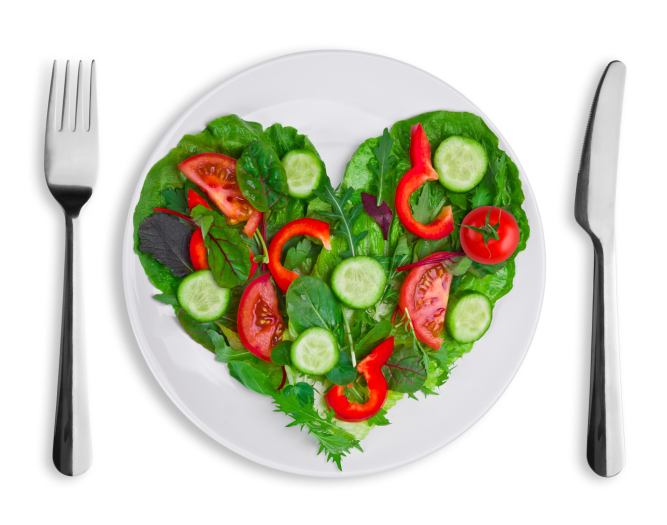
There are many different factors that help influence the health of your heart...and one of the most important of them is diet. Did you know that the right foods can even reverse heart disease?
Not only can you protect your heart with every meal you eat...you can even snack you way to a healthier heart.
1. Apples
When is comes to fighting heart disease, the mighty apple is still the king.
Apples frequently feature in heart health studies, and it's no wonder. When compared to the most commonly consumed fruit in the U.S., apples rank second only to cranberries in antioxidant activity. They're also filled with pectin, a fiber that interacts with other phytonutrients found in apples to deliver a host of cardiovascular benefits.
You Can Now Drink Your Way To A Healthier Heart With Meta Daily Heart Health ---> click here <---
How they help: Quercetin and other apple antioxidants combat oxidative stress that can lead to atherosclerosis and other cardiovascular problems, while pectin helps lower LDL (bad) cholesterol, a precursor and contributor to heart disease. Apples are also anti-inflammatory, which helps support overall vascular health.
Snack smart: All apple varieties deliver these heart-protective nutrients, but red apples boast the most antioxidant power.
2. Garbanzo beans (chickpeas)
Studies have linked regular consumption of legumes with a 22 percent lower risk of coronary heart disease.
How they help: All beans are a good bet for heart health, but garbanzo beans are the winner when it comes to reducing your risk of coronary heart disease. They're packed with soluble fiber -- which helps lower cholesterol -- in addition to heart-protective antioxidants, potassium, and omega-3 fatty acids.
Add This To Your Drink Or Smoothie For A Quick Boost To Your Heart (click here)
Snack smart: Aim for four servings a week. Grab hummus and whole-wheat pita on the go, or snack on whole chickpeas right from the can (look for brands that list only these three ingredients: garbanzo beans, water, sea salt).
3. Almonds
Researchers have found that regular consumption of nuts is associated with a 37 percent reduced risk of coronary heart disease. Why almonds? They're packed with more cardioprotective nutrients than just about any other nut (walnuts are a close second).
How they help: Almonds are filed with heart-healthy nutrients, including fiber, vitamin E, potassium, and magnesium. Magnesium contributes to healthy blood pressure, and potassium is essential for helping your heart pump blood. Almonds are also rich in monounsaturated fat -- the healthy kind -- which has been associated with lower levels of heart disease in countless studies.
Snack smart: Reach for plain raw almonds or top an apple with a tablespoon of unsweetened almond butter. Work four servings a week into your routine to give your heart health a boost.
4. Blueberries
Studies show that high blueberry consumption (one to two cups per day) can improve...
... cholesterol levels, lower triglycerides, and protect against oxidative damage that could lead to clogged blood vessels, a sign of heart disease.
How they help: Blueberries are powerful pellets of antioxidants (especially manganese and vitamins C and E) that provide protection on a cellular level. In addition to lowering LDL ("bad") cholesterol and raising HDL ("good") cholesterol, the phytonutrients in blueberries also prevent plaque buildup in the arteries, protect blood vessels, and support healthy blood pressure levels.
Snack smart: A number of recent studies have shown that organic blueberries may have a higher antioxidant capacity than their conventionally grown cousins. Opt for organic, and eat them as often as possible; daily is best. Out of season, dip into a bag of frozen blueberries -- they retain virtually all of their antioxidant power.
5. Dark chocolate
In 2004, Columbian scientist Oscar Franco and his team of researchers published an article, in the British Medical Journal, that proposed a natural dietary means to reduce heart disease. It was dubbed the "polymeal" and researchers asserted that, if eaten daily, the seven proposed food groups could cut risk of heart disease by more than 75 percent. One of those seven foods was dark chocolate, which, as an individual component, was found to reduce risk of cardiovascular disease by an incredible 21 percent.
How it helps: Dark chocolate has a high percentage of cocoa. Cocoa is incredibly rich in compounds known as flavanols (a type of flavonoid), which help prevent clogged arteries, thereby reducing the risk of heart attack and stroke. Dark chocolate has also been shown to decrease blood pressure.
Snack smart: A small amount of dark chocolate is healthy for most people. Stick to small portions (about a two-inch square, or no more than an ounce) of chocolate with a high cocoa content -- 70 percent or higher.
6. Grapes
Grapes are high in various heart-protective nutrients, including vitamin C, vitamin B6, potassium, and flavonoids.
How they help: Grapes support cardiovascular health primarily thanks to their antioxidant and anti-inflammatory effects. Together, these nutrients promote healthy blood pressure, reduce LDL cholesterol, and help your heart pump blood. B6 is a powerful anti-inflammatory agent that helps minimize the risk of inflammation, atherosclerosis, and hypertension.
Snack smart: Fresh grapes are tops for the whole nutritional package, and grapes retain these components when frozen. Eat the seeds, too -- they're loaded with healthful nutrients.
7. Walnuts
Like almonds, walnuts are rich in heart-healthy antioxidant vitamin E, potassium, and magnesium, but they really shine thanks to a good dose of omega-3 fatty acids. Just one quarter-cup serving contains nearly 95 percent of your daily dose.
How they help: Walnuts lower LDL cholesterol, help regulate blood pressure, and protect against excessive clotting and inflammation. Omega-3 fatty acids are antiatherosclerotic, meaning they help prevent (and may even reverse) atherosclerosis, the progressive thickening and hardening of the artery walls created by fatty deposits. In other words, omega-3 fats are the "good fat" you've heard about, and they're fantastic at fighting deadly atherosclerotic heart disease.
Snack smart: A good portion of the nutrients in a walnut is found in its skin, so go for whole, raw nuts with the skins on.
 Dr. Clyde Warren Yancy is a professor of internal medicine, and award-winning cardiologist at Northwestern Memorial Hospital.
Dr. Clyde Warren Yancy is a professor of internal medicine, and award-winning cardiologist at Northwestern Memorial Hospital.









